Antisemitism is everywhere. We tracked it across all 50 states.
In Nevada, there are Jews who have hidden any signs of their faith, painting over the mezuzahs that hang outside their homes. That’s happened in Texas, too, where a Jewish city council member’s home in Dallas was defaced with bright red graffiti. But Jews in South Carolina say Christians in their community will stop them on the streets to offer prayers. Sometimes, they even get a hug. Just for being Jewish.
Antisemitism is on the rise in America. Some places you feel that, Jews across the country say, others places you don’t. States are not a monolith, nor are people. But we set out to answer a question: What does the widely reported surge in antisemitism look like? As we interviewed people, there were things we heard over and over: Jews are frightened. They’re frustrated. And they all worry about it, even if they feel safe in their own communities.
Antisemitism impacts secular Jews and religious ones, children and adults, regular folks and TV stars.
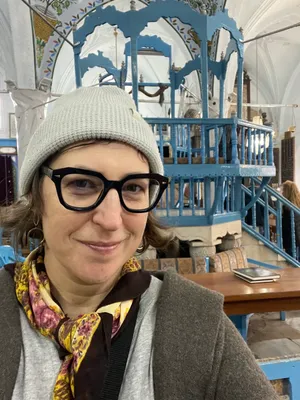
Actress Mayim Bialik says Jews everywhere are having the same surreal conversations.
“I thought about taking my mezuzah down in the weeks and first couple months after Oct. 7, and I don’t think about that anymore, but I do have a pervasive fear that I will be confronted by someone, especially since I am a public face of being Jewish,” says the former “Big Bang Theory” star. “It’s a fear that I think many of us have experienced, even if you’re not a public person.”
Bialik feels a responsibility to speak out: “I never thought that my platform would have to be used to defend the right of Jews to exist.
“I was raised and educated and even studied the Jewish experience in America, and I knew that there was a tremendous amount of antisemitism both covert and overt, but I did not understand the scale,” she says. “I had no idea of the scale.”
On Monday night, Jews will gather for Passover. They’ll eat matzah and sing songs, and tell the story of the exodus, a story that carries more weight this year. After all, the Passover story is, in part, a tale of Jews leaving a place where they no longer felt they could live at ease. Some Jews say they feel that way today − in America.
“Jews are talking about ‘do you have a passport?’ ‘Are you armed?’ People are actually having these conversations,” says Shoshana Stein Benarroch, 43, who runs the TikTok account @mysocalledjewishlife. Her kosher cooking videos have been inundated with hate.
Yet perhaps one of the more interesting phenomena in recent months is that of Jews returning to their synagogues and leaning into their Judaism, rather than shying away from it.
“What we’re seeing is a tremendous amount of this Jewish awakening,” says Rabbi Motti Seligson, Director of Public Relations for Chabad.org. “We’re seeing Jews doubling down on their Judaism by spending more time with fellow Jews, by becoming more Jewish.”
The past six months have been a wake-up call, Seligson says. “I think that all this (hate) just came to the surface. It’s not like it didn’t exist. You just needed the right circumstances to expose it.”
Here’s what the Jews we spoke to had to say about their experiences, across all 50 states.
Explore by state
Alabama ∙ Alaska ∙ Arizona ∙ Arkansas ∙ California ∙ Colorado ∙ Connecticut ∙ Delaware ∙ Florida ∙ Georgia ∙ Hawaii ∙ Idaho ∙ Illinois ∙ Indiana ∙ Iowa ∙ Kansas ∙ Kentucky ∙ Louisiana ∙ Maine ∙ Maryland ∙ Massachusetts ∙ Michigan ∙ Minnesota ∙ Mississippi ∙ Missouri ∙ Montana ∙ Nebraska ∙ Nevada ∙ New Hampshire ∙ New Jersey ∙ New Mexico ∙ New York ∙ North Carolina ∙ North Dakota ∙ Ohio ∙ Oklahoma ∙ Oregon ∙ Pennsylvania ∙ Rhode Island ∙ South Carolina ∙ South Dakota ∙ Tennessee ∙ Texas ∙ Utah ∙ Vermont ∙ Virginia ∙ Washington ∙ Washington, D.C. ∙ West Virginia ∙ Wisconsin ∙ Wyoming
ALABAMA
For some Jews in Alabama, there is a sense of otherness that comes with being disconnected from the predominantly Chrisitan culture around them, says Phil Ensler, the executive director of the Jewish Federation of Central Alabama.
That feeling has been underscored lately: In December, Rabbi Scott Looper’s Temple Beth Or in Montgomery was one of six Jewish institutions in the area that received bomb threats. (There are only seven in total.)
The FBI got involved, and the threats were cleared, but he and his congregants still feel concerned amid the increase in antisemitism nationwide.
“I think that, in general, raises anxiety," Looper says. But he also believes it’s important to put these events into context, adding “antisemitism is the concept that the Jew seems to be an easy target.
"This is not a new thing. This is thousands of years old. It gets repeated over and over and continues."
Return to state list
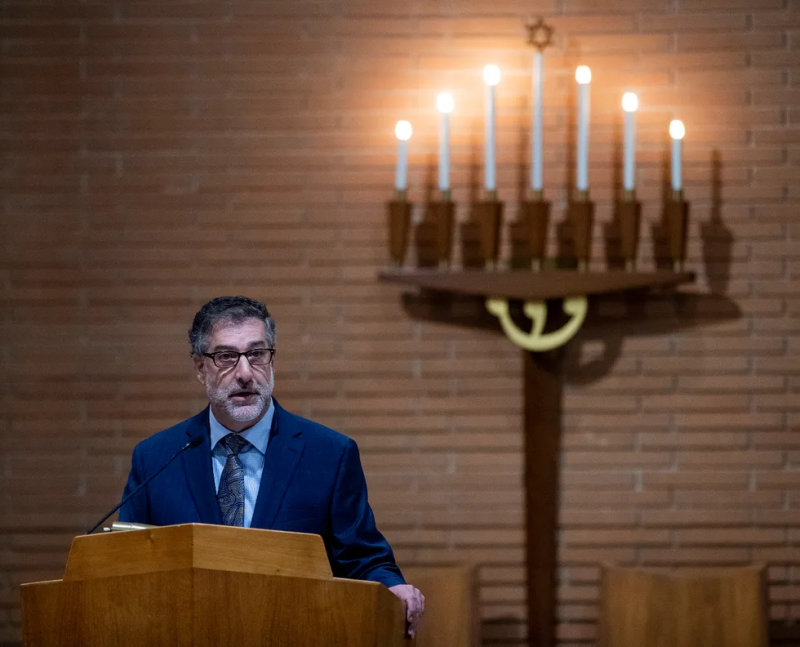
ALASKA
Typically, Alaska is “a great place to be Jewish,” but lately things have felt tense, says Rabbi Abram Goodstein, of Anchorage. “We have a very emotional group of people who are very intensely pro-Palestinian, and they don’t care if they are coming off as antisemitic or not,” he says.
There’s also been a divide within his congregation, which he says is largely progressive: “What do they say? ‘You have two Jews and three opinions.’ There is so much fear happening in our community, but also people who don’t agree with what Israel is doing. I am trying to hold a place where people can have such diverse opinions and still be respectful of each other. I’m trying. I don’t know if it’s successful or not.”
Return to state list
ARIZONA
In Phoenix, Karolyn Benger plans to forgo her yearly outdoor Passover decorations. She typically places over her balcony two blue blankets with fish drawings glued on in representation of Moses’ parting of the Red Sea during the exodus. She and her family wanted to hang the Israeli flag in that same space recently but decided against it.“We're very close to some major streets and … we decided it would be safer to not do that,” Benger says.
Elianna Ickovic, who is Orthodox, says she too was on heightened alert after the war broke out in Israel. She’d tense up every time a car would slow down as she walked to-and-from synagogue during the Sabbath.
But all the encounters she’s had in public have been positive.
The mother of five recalled one incident in particular. An older woman approached Ickovic while she was taking her 1-year-old for a stroll.
The woman said, “Your daughter is so beautiful,” Ickovic recalls, and then added, “I want you to know we are thinking of you, and we are praying for you.” Ickovic responded, “Thank you so much. That means a lot to me and my baby.”
She is less fearful now.
Return to state list
ARKANSAS
“The broader community, as a whole, has been supportive and the city and the federal government in particular, have been very, very responsive to us,” says Rabbi Barry Block who leads Little Rock’s Congregation B’nai Shalom. “We haven’t had a significant problem but are we spending more money on security than we ever have before? Absolutely.”
Return to state list
CALIFORNIA
Jews say both Berkeley the city and the UC Berkeley campus have felt like hotbeds for antisemitism since the war broke out.“The violence is increasing, because along with the verbal violence has come physical violence,” says Dorothea Dorenz. The 76-year-old has been a resident of the city of Berkeley since the ‘70s.
Tensions have been especially high on the UC Berkeley campus since a Feb. 26 event featuring a speaker from Israel ended in violence; protestors outside, many masked, broke down the doors, campus police told the AP. One police report alleges a victim was spit at and kicked; two others allege battery.
“People are finding that their friends are turning away from them… And that is why we are finding (antisemitic graffiti) on people’s businesses. They are defacing and they are calling for boycotts of Jewish businesses. This is like Nazi Germany what is going on here.”
Mayim Bialik says in Los Angeles there’s been a palpable divide in groups that had previously seemed politically aligned: “The difference between a Jewish liberal progressive, I did not think was very far from a non-Jewish liberal progressive. And in Los Angeles, it feels like lines are being drawn in really scary ways.”
Dorenz says of Berkeley, “this is a very extreme area” but people should know about it because “they say everything spreads from California.”
Return to state list
COLORADO
“I don’t think there is fear, but I think there is unease among people I meet in the Jewish community,” says Adam Rovner, 53, Director of the Center for Judaic Studies at the University of Denver. “And among my students, I have had students express to me clearly that they feel unsupported on campus.”
Rovner says that feeling was underscored at a March event when flyers were distributed that featured a QR code linking to a Hamas military pamphlet. The U.S. State Department designated Hamas a terrorist group in 1997.
“To have students, especially graduate students … believing, disseminating or advocating for Hamas – to serve as Hamas apologists – is disturbing.”
Return to state list
CONNECTICUT
In December, more than 1,500 students, parents and faculty members at Yale signed a letter voicing concern about “a climate of hostility to Jews and pro-Israel voices” on campus.
“This is an unprecedented moment of fear and isolation for American Jews,” says Uri Cohen, executive director of the Joseph Slifka Center for Jewish Life.
Still, the campus center is hosting gatherings and holidays. And Rabbi Avrohom Sternberg, of Eastern Connecticut’s Congregation Ahavath Chesed, says some in the area are more engaged than ever. “Over the past few months, I have seen a tremendous (awakening) of young and old who are displaying their Judaism with pride.”
Return to state list
DELAWARE
“The most significant aspect of my life that has changed in recent months is where I find myself most comfortable,” says Lynsie Lightman, a student at the University of Delaware. She’s been spending more time at the Hillel center lately.
Three years ago, an arsonist set the university's Chabad Center on fire. But since then, Rabbi Chuni Vogel, the Chabad director for Delaware, has felt safe and proud to be Jewish in Wilmington.
There has been a reported increase in antisemitism in the area, but he encourages “people to counteract antisemitism by showing ourselves and being proud of who we are."
That’s what Lightman is doing. She wears jewelry with Hebrew writing and Hillel-branded sweats around campus. “There are moments when I second guess my choices,” she says, “however, at the end of the day, I am proud to be Jewish.”
Return to state list
FLORIDA
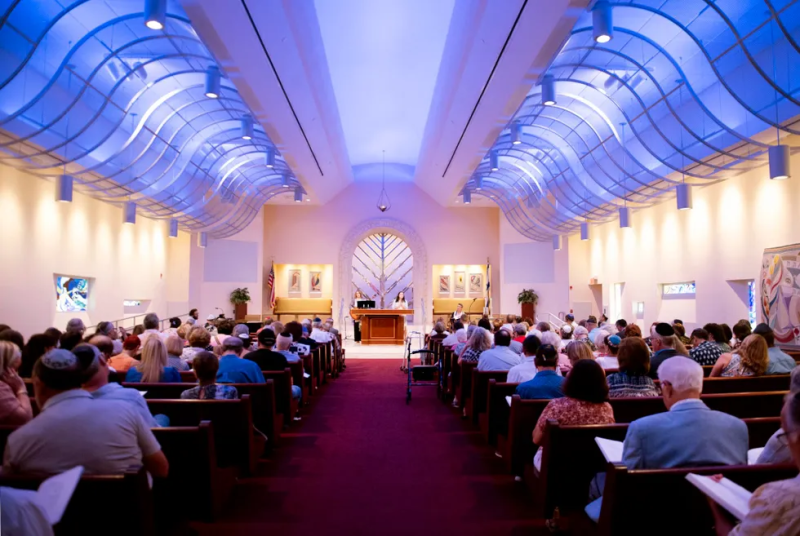
In South Florida along a busy street, sits a billboard advertising an Israeli radio station. Tune to 107.1 for music, ads and occasional commentary, all in Hebrew.
It’s not uncommon to see cars driving around with Israeli flags flapping from their windows. Some are adorned with decals that mimic the 8’’-by-11’’ missing persons posters featuring the hostages that were displayed, and torn down, shortly after the war began.
For many local Jews, rising antisemitism is a concern but a distant one.
“We’re very lucky,” says Shoshana Stein Benarroch, 43. She displays a large Israeli flag outside her home. “We’re blessed to be here. The very pro-Jewish dynamic that is down here in South Florida and having such a huge Jewish community also makes a big difference.”
Return to state list
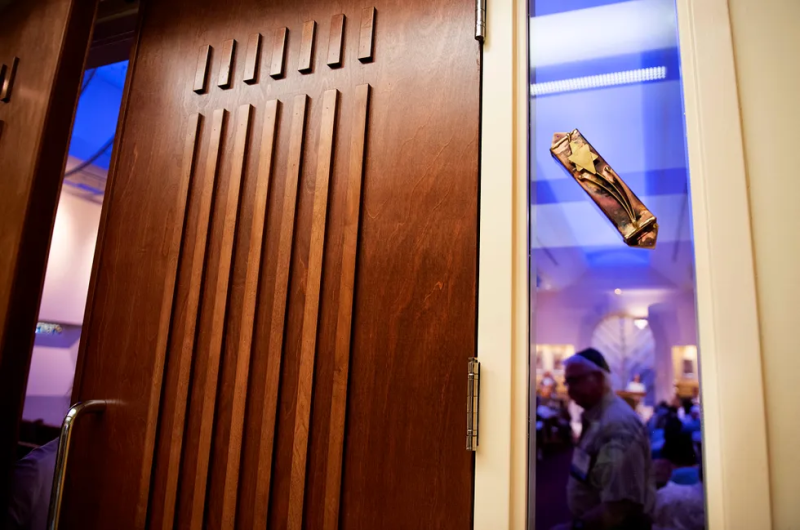
GEORGIA
Like elsewhere around the country, antisemitic rhetoric in Georgia has felt more prevalent lately. At Emory University in October, the slogans at a protest turned particularly hateful. One city council meeting in the Atlanta area “would’ve just made you want to throw up, the comments about Jews that were blatantly antisemitic,” says Eric Robbins, president and CEO of the Jewish Federation of Greater Atlanta.
Still, there’s hope, especially as Passover nears. In “every generation Jews have been threatened and have prevailed, and so it's unfortunate that here we are again, and we feel threatened. But you also see signs of resilience and determination and support and you see that we will prevail again.”
Return to state list
HAWAII
About five hours by plane from the mainland U.S., Rabbi-Cantor Cheri Weiss, in Oahu, has received threats via email and has seen an increase in vandalism and hateful graffiti.
"I see a lot of anger, rallies and hatred. I don't know where that end will be and that does hurt my heart," Weiss says. "When people feel emboldened to join in the rhetoric, they do.”
Weiss leads Temple Emanu-El, one of the largest Jewish organizations in the state. She’s feeling "saddened, cautious” by what she’s seen – but still hopeful.
She’s heard interfaith leaders call for an end to the hate and more people are attending her intro to Judaism classes. Lately, Jews and non-Jews alike are interested in learning about the religion. Some have told her Oct. 7 was a final push to convert. That’s given her hope.
Return to state list
IDAHO
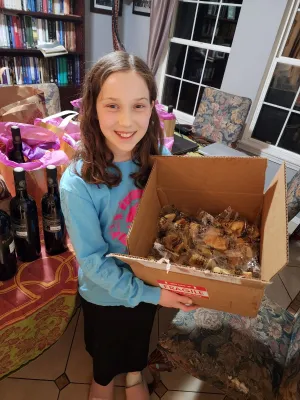
Recently, as the Jewish holiday of Purim approached, Rabbi Mendel Lifshitz received a large box on the doorstep of his Chabad center in Boise.
“I open it up and there is a case of 100 kosher hamantaschen (cookies) in there,” he says. The package came from a non-Jew. “We have a lot of these instances where people reach out and tell us how much they support us.”
Jews in Boise have flocked to his synagogue in recent months. “I always preach to my community that our job is pro-semitism. ‘What can we do to make sure that Jews feel proud and secure?’
“I can’t tell you how many people have said, ‘Rabbi, I am going to put up a mezuzah on my door.’ People are just stepping up because they feel so ignited Jewishly. That’s been the silver lining for us.”
Return to state list
ILLINOIS
Dan Goldwin walks his dog each day in Chicago, and he’s become accustomed to seeing a “constant parade” of war-related signage in his neighborhood “just slamming Israel. It’s veiled antisemitism and not-so-veiled antisemitism.”
Recently, several neighborhoods have been targeted by handwritten antisemitic flyers that tout conspiracy theories “blaming Jews for everything under the sun.”
“I feel like there is a constant shifting of places that we thought we’d be OK to go to; It’s a theater, it’s a concert venue, it’s city hall and all of a sudden, you’re being confronted with vitriolic marchers and chants.”
“People say that anti-Zionism is not the same as antisemitism, and that’s been totally busted here,” says Ryan Brown, 30. In March, Chicago canceled a planned Matisyahu concert due to protests. Citing the lyrics to the singer’s hit “One Day,” Brown adds: “He’s a pro-peace Jewish guy. And they are protesting that guy?”
Return to state list
INDIANA
Megan Maurer has seen instances of rising antisemitism firsthand. A swastika was drawn in the yard of a Jewish neighbor; and her 16-year-old daughter’s peers have sent cruel text messages, fueled by inaccurate social media videos.
“Not everything is all good/all bad. There’s complexity, there’s nuance, and it’s very hard to convey that on social media,” says Maurer.
Her family lost several friends in the Oct. 7 attacks, including Ofir Libstein, the head of the Sha’ar Hanegev Regional Council, who had been working to secure work permits and better wages for Palestinians in Gaza who work along the border.
The attacks have cast doubt on a realistic two-state solution, Maurer says, but she is hopeful for the future. Constructive dialogue will be part of a path forward that requires honesty, courage and willingness to listen, she says: “We need to raise awareness and be willing to have uncomfortable conversations.”
Return to state list
IOWA
Last month, members of Temple B’nai Jeshurun celebrated a milestone anniversary — 150 years in Des Moines. There was live music, a table arched by a spread, gold balloons and a champagne toast.
The event was supposed to take place in November but was moved after the start of the war, says Emily Kruse, the temple’s board president. Temple leaders and congregation members felt it would be inappropriate to keep the party’s initial date. Instead, they leaned on each other for solace and comfort.The rise of antisemitic incidents won’t stop them from meeting and holding events, she says.
“Our goal is to always continue to provide opportunities for people to gather and worship and discuss. And I say this not to be (flippant), but antisemitism has always been around and is probably always going to be around.”
Return to state list
KANSAS
Alexa Schwartz, a 20-year-old sophomore at the University of Kansas, has been wearing her Star of David every day since Oct. 7, which she says marked the beginning of many ends in her personal life.
“I have posted my thoughts and feelings concerning Oct. 7 and the events since, but some who disagree with me have left my life without having an open and respectful conversation,” Schwartz says. “It has made me feel like I am doing something wrong by being who I am, which is not a feeling I want to have.”
Outside of her Jewish communities, there aren’t many people she feels comfortable and safe being around.
“We are seeing horrific things happening on all college campuses and our communities and leaders are not doing their jobs, allowing it all to happen,” she says. “Jewish students feel unsafe, and in some cases are attacked and assaulted, and all we can do is scream it from the rooftops, hoping someone will hear our cries.”
Return to state list
KENTUCKY
Siera Hanks is a fourth generation Jewish Louisvillian.
She is an active participant at her synagogue, grew up going to Jewish summer camps and wears necklaces with the “chai” symbol.
Less than 1% of the population in Kentucky is Jewish. “There is a visibility of difference that causes questions sometimes in public spaces, kind of automatically,” she says.
Hanks has been aware of her safety for years and has seen her family members experience antisemitism. Still, she is not necessarily more scared this year than she is any other year.
She is a member of Jewish Louisvillians for Peace, an organization which calls for a cease-fire in Gaza and the return of all hostages.
“There's a fear of being seen as less a part of the community, and there's also just a fear of hurting people (by) bringing them into a conversation that they might not be ready for or be uncomfortable with,” Hanks says.
For three years, Hanks has included olives from a Louisville Palestinian grocery store on her seder plate during Passover. She plans to include them in her tradition again this year.
“It's always been very explicit to me that a Passover seder is calling us to consider difficult things like that,” she says. “This year, it's particularly intense and there's a call for that consideration to be more material and more serious.”
Return to state list
LOUISIANA
Despite some headline-making violent incidents at Tulane University, Ryan Orlov’s Jewish pride is in full force. "I feel completely comfortable as a Jewish student on campus,” the 21-year-old says.
Ron Gubitz, executive director of Tulane Hillel, says the organization has "seen an increase in student participation” in recent months.
Orlov sums it up: “There has been a lot of activity this year but not much has changed here. I feel proud to be Jewish at Tulane."
Return to state list
MAINE
“Most people don’t know about Jewish people here in the state of Maine,” says Rabbi Moshe Wilansky, of Portland. The state has a modest Jewish population.
When the war first began, strangers would approach him and offer words of support. There have also been scattered protests. But generally, the conflict doesn’t seem to be at the forefront of people’s minds. Judging by the rising antisemitism he’s heard about in other states, he says perhaps that’s for the best.
Return to state list
MARYLAND
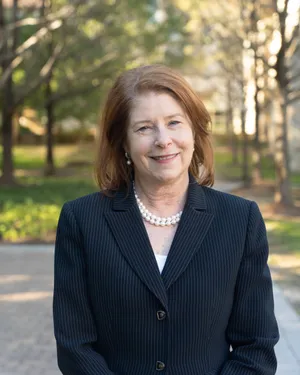
Randy Gartner feels “relatively safe” in Ellicott City. He stood up with his community against a proposal in the city council calling for a cease-fire in Gaza; he sat in the front row, holding his Israeli flag and clutching a poster featuring one of the Hamas hostages. The resolution failed. He argues: Why should a town in Maryland weigh in on an international conflict instead of solving problems at home?
“I was proud of the fact that I did my civic duty,” he says.
But Ruth Lenrow feels anxious. Her family has been in Baltimore for more than 100 years.
“For the first time in our lifetime, my husband and I have been discussing, ‘Where could we go if things got worse?’ ” Lenrow, 72, says. She’s a member of the Associated Jewish Federation of Baltimore/Baltimore Jewish Council Antisemitism Committee. “I am very concerned for my children and my grandchildren,” she adds.
Still, these days she proudly wears a Jewish star pendant on the outside of her clothes. She’s never worn it openly before, but “silence is not an option,” she says.
Return to state list
MASSACHUSETTS
Tucked in the cozy corners of Cambridge lies Harvard University.
There, posters of kidnapped Israelis have been vandalized with debunked conspiracy theories like “Israel did 9/11,” and students at protests chant messages like “globalize the Intifada,” says Danny Denenberg, a 21-year-old sophomore.
The university made national headlines in January after its president, Claudine Gay, resigned following criticism over her response to antisemitism on campus, as well as academic plagiarism accusations.“Israelis have had to drop classes because of the hostility and pushback they have experienced simply for being Israeli,” Denenberg says. There’s also an anonymous student chat platform that is filled with “deep rooted antisemitic tropes,” he says.Yet, Denenberg has no plans to allow the negativity on campus ruin or alter his holiday celebrations: “I will celebrate Passover with the same vivacity as before, if not more. I will not let anyone dictate my people’s faith. Our ruach (spirit) is ever strong!”
Return to state list
MICHIGAN
Last month, a Jewish country club in West Bloomfield was vandalized with graffiti after a protest was held against the club for hosting an event supporting Israel’s military that was later moved to a different location, police said.
While that incident raised concerns, “We really, thank God, have not seen a huge upswing in those physical threats being carried out,” says Sam Dubin, the executive director for the Jewish Community Relations Council/American Jewish Committee Detroit. “And I think that's a testament to … our law enforcement and in the fact that our Jewish community takes security very seriously.”
Rabbi Aaron Starr, of Congregation Shaarey Zedek, adds that the community has also seen support, such as when his synagogue hosted a packed rally for Israel in October that featured political leaders such as Gov. Gretchen Whitmer and U.S. Sen. Gary Peters, D-Michigan.
Dubin adds, “While we are uneasy and on edge … we persevere through that. So we still wear our yarmulke, we still keep our mezuzahs on our door, we still present these Jewish symbols knowing that unfortunately, in today's society, there's a risk in doing so.”
Return to state list
MINNESOTA
“So many Jews, including the children of Holocaust survivors, have expressed how relieved they are that their parents aren’t alive to see this moment in Minnesota,” says Ethan Roberts, deputy executive director for the Jewish Community Relations Council of Minnesota and the Dakotas. “Others have said that they don’t recognize their state and especially Minneapolis anymore.”
Roberts has convened nearly 30 constituent meetings between members of the state legislature and hundreds of Minnesota Jews.
“Just the act of showing up at these constituent meetings and expressing themselves is an act of resilience,” Roberts says. “Even more so for the Jews who have shown up over and over again to Minneapolis City Council meetings (knowing) they will be screamed at … and berated for being Jews.”
Return to state list
MISSISSIPPI
The Beth Israel Congregation in Jackson worships at the only synagogue in the city, the largest in the state.
Rabbi Joseph Rosen and his congregants have weathered several challenges in the past few months, including a bomb threat in December.
Although the threat was later proven a hoax, the congregation feels a lingering unease.
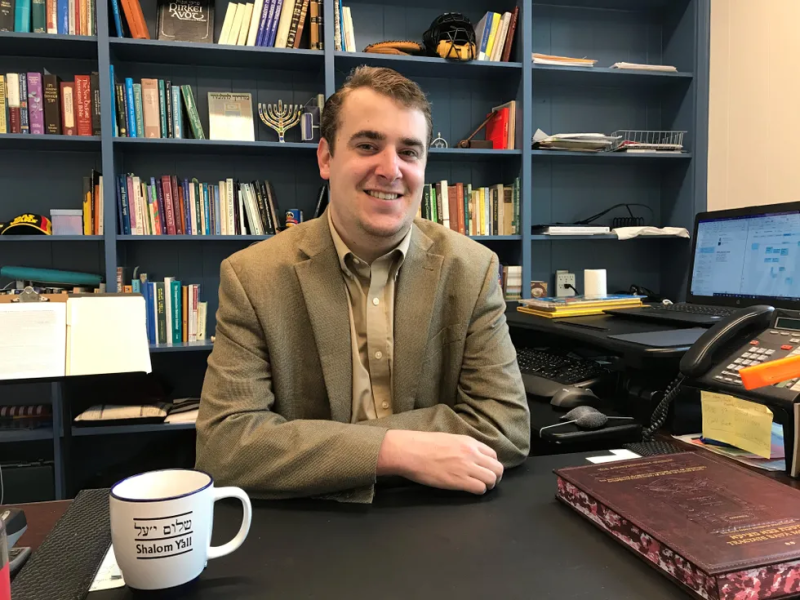
But Rosen says the congregants feel supported by their fellow Jacksonians, and they refuse to hide their faith. The synagogue is vigilant when necessary; There will be a security presence at upcoming Passover events, but that’s not their focus. "We use the holidays to reflect on the conflict in Israel and Gaza and all the people who are suffering from the violence and pray," Rosen says.
For Rosen, now is the time to come together.
"The rise in antisemitism is often paired with rising hatred toward others as well," Rosen says. "There's been a rise in Islamophobia, and when we raise and focus on these feelings of suspicion, we close ourselves off to people that we need to connect with that can help strengthen our resilience."
Return to state list
MISSOURI
For Valentine’s Day this year, Casey Glass’ fiancé bought her a Star of David necklace. Recently, while she was bartending, a patron told her the necklace was “too much.”
“I responded with ‘well, thank you for your opinion’ and walked away.”
The 31-year-old doesn’t know many other Jews in the St. Charles area. She’s originally from New Jersey and relocated to Missouri last year. “I have experienced a lot of loneliness in regards to Judaism during this time,” she says. “I feel like I am kind of on my own in this, and if someone does say something (antisemitic), I feel like I have no one to go to.”
But wearing her necklace has also brought connection: “I just met a Jewish family at the restaurant I work at. They said, ‘… Your necklace is so beautiful. We’re Jewish too, but we just don’t show it off.’” It’s helped her realize she’s not as alone as she thought.
Return to state list
MONTANA
Rep. Ed Stafman, D-Bozeman, led a reform congregation for 10 years before he began serving in the state legislature. Once during his time at the synagogue, he discovered pig bones in the mailbox in a bag.
“Generally in Montana, there are these periodic instances that come and go of antisemitic leafleting by far-right groups that are associated with neo-Nazi movements … and then you won’t hear from them for six months.”
In late October, neo-Nazi protesters turned up outside a Missoula synagogue. “But it is important to remember that nearly all Montanans stand with their Jewish communities and want to help,” says Rebecca Stanfel, director of the Montana Jewish Project.
Stafman adds, “One of the really challenging things is to be careful not to mix up criticism of Israel’s policies with antisemitism even though sometimes it can be the case, but it’s not always the case.”
Return to state list
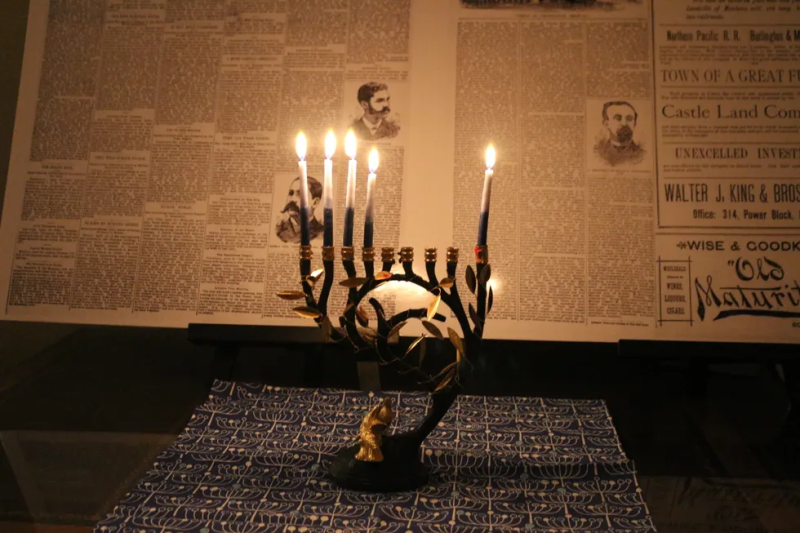
NEBRASKA
Scott Littky, executive director of the Institute for Holocaust Education, has been receiving calls from parents who are worried about antisemitic tropes their children's teachers are using.
In downtown Omaha, he encountered a flier that spread a conspiracy theory about the war. He didn’t tear it down and instead reported it to area Jewish groups and the Anti-Defamation League.
Moments like these are upsetting but they don’t impact his safety, he says. "I don't feel that I am any less safe than I (was) in September.”
Return to state list
NEVADA
Elliot Malin, of Reno, hasn’t been wearing anything identifiably Jewish since October, and is hesitant to attend events that are “too openly Jewish” without a security presence.
“We’ve had heavier police presence over the last five months than we’ve ever had before” at gatherings, says Malin, who serves as chair of the Governor's Advisory Council for Education Relating to the Holocaust.
Malin also has taken steps to make his residence look visibly less Jewish. He kept the mezuzah outside his front door but has taken measures to blend it in with his home’s exterior.
“We didn’t put a menorah up in the front window this year,” Malin says. “In fact, I put up a little Christmas tree instead to make it look like we weren’t Jewish.”
Some, however, are seeking a higher profile than before, says Evon Yakar, the rabbi at two synagogues in the Tahoe area.
“The 25-and-younger (crowd) in my two congregations, there seems to be a motivation to display their Jewishness more,” he says. “Young people about to become bar or bat mitzvah in the next year or two mentioned to me they started wearing their Magen David, their Star of David.”
Return to state list
NEW HAMPSHIRE
Rabbi Levi Krinsky has been woken up in the middle of the night by threatening phone calls."We report everything to the police,” he says. Still, the leader of the Chabad Center for Jewish Living in Manchester feels safe in New Hampshire. Police regularly patrol his synagogue when they have major events.
He worries antisemitism will get worse with news headlines about the situation in Israel and Gaza every day. Krinsky hopes with each passing day the hostages are freed and the war ends.
"There's no rhyme or reason why people would attack local Jews," he says. But "antisemitism has no rhyme or reason."
Return to state list
NEW JERSEY
Lakewood has long been home to one of the world’s largest Orthodox Jewish enclaves. But as Jewish families began spilling over into neighboring towns, residents loudly espoused their fears of their communities becoming “another Lakewood.”
In December, the vitriol in nearby Jackson Township increased. Public comments at a meeting over religious ordinances grew so heated that Jewish leaders from across New Jersey called the comments “blatantly antisemitic.”
For nearly four hours, dozens of residents stepped up to the microphone imploring the Jackson Township Council to redraft or vote down the ordinances. Many accused the town's Orthodox Jewish community of orchestrating the ordinances as part of a "hostile takeover.”
Scott Richman, director of the New York/New Jersey Anti-Defamation League, summed up the scene: "The rhetoric used plays into classic antisemitic tropes and conspiracy theories about power and influence."
Return to state list
NEW MEXICO
Robert Efroymson says generally Santa Fe is a “very welcoming place.” He feels at ease on a daily basis, though some of the protests he’s witnessed have “veered into flagrant antisemitism.”
“There were some people shouting horrible things, deeply unpleasant,” the 60-year-old says.
“I have engaged with them on occasion, and generally speaking, I would say that (there’s) an element of bigotry there and the willingness to say slurs, but it’s mostly just a great deal of ignorance.”
To a group of protestors chanting “from the river to the sea” he asked “ ‘just out of curiosity, which river and which sea?’ and people wouldn’t know. Just completely wrong answers. People have these extreme opinions about something they don’t know about.”
Return to state list
NEW YORK
In recent months Julia Haart, star of “My Unorthodox Life," has received death threats on social media and has experienced antisemitism simply walking around.
“I’ve walked down the street in NYC and been called ‘dirty Jew’ by passing cars that recognize me,” says Haart, who founded the website AHM Nation aimed to fight antisemitism. “I genuinely thought that antisemitism was a curse of the past… I couldn’t have been more wrong.”
Elsewhere in the city, Alexis Barad-Cutler says she’s lost several working relationships because she has “felt called to speak up for Jewish people against antisemitism.”
The war consumes her mind daily: “I don’t know a single mother who doesn’t struggle with intrusive thoughts about the war and the ongoing suffering of families in Israel and Gaza. And the Jewish mothers I know are consumed with thoughts of what could happen to our families in the future if things continue in this awful trajectory of antisemitism couched as anti-Zionism.”
Return to state list
NORTH CAROLINA
Rebecca Feinglos, of Durham, has been struggling with how to show her Jewish identity in public.
“It’s something I never thought I’d question, but the fear … made me rethink things,” says Feinglos, the founder of grief organization Grieve Leave. She stopped wearing her Star of David necklace – what if people made assumptions about her opinions in the Israel-Gaza conflict? – and took her religious affiliation off her dating profile for a few months.
But she also hung up a mezuzah for the first time. Something about that felt different. Meaningful.
“It's a way of expressing my Jewish identity in a more private space, just for me and my guests,” she says.
Return to state list
NORTH DAKOTA
An estimated 500 Jews live in North Dakota – a small but mighty group who aren’t sacrificing their religion in the wake of heightened antisemitism around the country.
“Our response to antisemitism is not to hide,” says Rabbi Yonah Grossman, of the Chabad Jewish Center of North Dakota. While Jews in North Dakota haven’t experienced a direct increase in hostility in the state, according to Grossman, when something happens to Jews elsewhere in the world, others feel it too.
Return to state list
OHIO
Rabbi Ari Jun says in the Cincinnati area there’s been a sharp uptick in antisemitic incidents.
“Emotionally people are frustrated, scared, upset,” he says. “We are seeing a lot of people feeling like the only spaces they’re entirely welcome and safe is with their family or within the Jewish community.”
Rachel Kaplan worries about her four young kids. She now doesn’t let her kids walk to temple by themselves — even though it's four houses away from their home. She had to sit down and talk through with them what to do if they feel unsafe or are confronted at school because of their religion. These “are not conversations I thought I would ever have to have with them.”
She says a shared sense of anxiety and stress is infused in daily conversations with other Jewish friends. “It’s something that you can’t really get away from. We used to get together with friends and talk about, you know, our vacations … and now we’re talking about our family and (if) they’re OK.”
Return to state list
OKLAHOMA
For the past several years, neighborhoods in Oklahoma City have been blanketed sporadically by antisemitic pamphlets. “It’s like everyone in an entire neighborhood gets them,” explains Rabbi Abby Jacobson, of Emanuel Synagogue. “They are intended to inform the non-Jewish community of the ‘evils’ of the Jewish community.” That trend has continued in recent months.
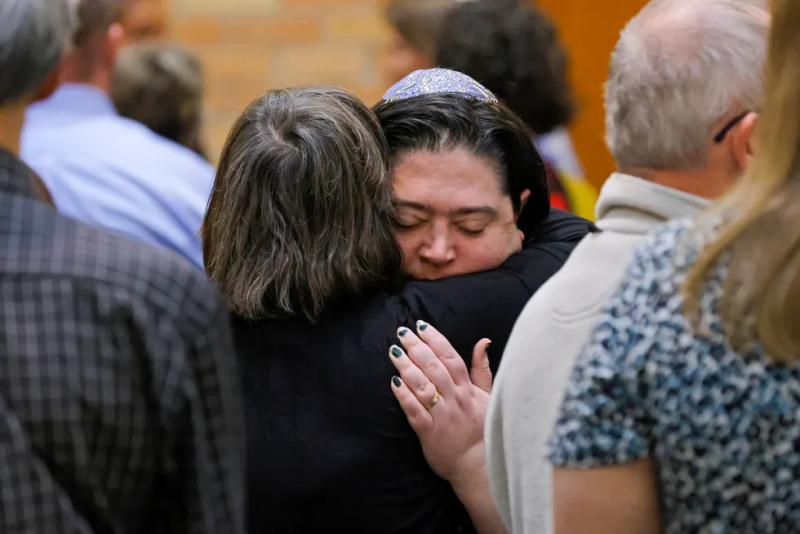
“Just to clarify, all of the hate that we have gotten so far has not been from Muslims... It is coming from those in the state who are not directly affected by the war with Hamas.”
In fact, Jacobson says the first text message she received following Oct. 7 came from the local imam. It read, “Are you ok? Do you need anything? Thinking about you (and) praying for you.”
“The imam lost some family in Gaza. We put together the same shiva package we would put together for anyone else.”
Return to state list
OREGON
Antisemitic graffiti has appeared in Portland in recent months, and elsewhere in the state a man was charged with hate crimes after a synagogue was defaced.
Still, Steve Albert feels safe on a daily basis. As the executive director of the Mittleman Jewish Community Center and Portland Jewish Academy, he’s made security a top priority, and he feels “more proud than ever” to work in the Jewish community.
Meanwhile, Rabbi Ariel Stone, who leads a progressive congregation in Portland, says he’s heard of instances of overt antisemitism when people wear yarmulkes. Many Jews, he says, hesitated to display menorahs this past Hanukkah.
“Anxiety is ramped up and many Jews feel horror and despair over the current Israeli government’s (treatment) of the Palestinians of Gaza,” he says.
Return to state list
PENNSYLVANIA
Hannah Geller moved to Philadelphia “for the warm, young and diverse Jewish community,” the 26-year-old says. “But since Oct. 7, the hostility in the city is palpable and almost stings with intensity. I'm reconsidering more and more each day why I'm here.”
She’s active in the Orthodox Jewish community and frequently has conversations with fellow Jews who are torn about showing signs of their religion.
“They tell me they don't want to be scared, and they are proud, but they feel like a target with a Jewish star around their neck, a kippah on their head, a mezuzah on their door,” she says.
Rabbi S. Robert Rob Morais, of Temple Anshe Hesed, in Erie, tells a similar story: “I know people who are no longer comfortable wearing identifiably Jewish clothing or jewelry,” he says.
Yet, despite all this, Geller feels perhaps more proud than ever to be Jewish.
“New faces are showing up out of nowhere at Shabbat dinner who say they have been living here for years,” she says. “That's heartwarming.”
Return to state list
RHODE ISLAND
Michael Mechanic says after recent bomb threats shook the Jewish community in Providence, some members of his synagogue in Warwick began bringing pistols with them to services.
“I personally am more concerned than I was previously,” says Mechanic, of Pawtucket. He notes that, apart from bomb threats, “I don't have any real evidence or anything outward to support the fear.” It’s just a feeling.
The main Jewish population resides in the east side of Providence. The annual Purim parade in the city was canceled this year over security concerns.
“I'm uncomfortable with large gatherings of Jews, especially if it's outwardly Jewish, but it's New England,” Mechanic adds. “They're usually pretty accepting.” A few years ago, pre-pandemic, someone painted a swastika on a sign outside a synagogue. The non-Jewish community helped clean it off.
Mechanic adds. “I'm just always worried about the one lone person because that's sort of what happens.”
Return to state list
SOUTH CAROLINA
“We have a very small, vibrant Jewish community,” in Charleston, says Josh Nass, 32. “The local leadership and the political leadership in the town is incredibly supportive... None of the tearing down of hostage posters. That stuff doesn’t happen here.
“I am surprised we haven’t had an influx of migration to Charleston among Jews.”
Return to state list
SOUTH DAKOTA
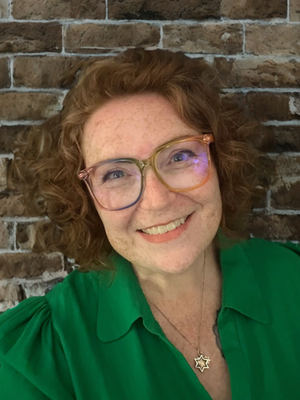
Jen Dreiske, 51, is one of only a few hundred Jews in South Dakota. She therefore has “had to grapple with what it means to be the only Jew in many circumstances.”
That said, “because of the love and respect from our vibrant and diverse communities in Sioux Falls, I feel safe displaying a mezuzah outside my home, wearing my Star of David necklace… and speaking at public events about Judaism,” she says. But she’s also “been on the front lines fighting antisemitism in our community for years,” such as when antisemitic symbols have shown up in parks or on signs.
She hopes in doing so, she’s setting a good example for her 10-year-old son. “My responsibility as his mother is to pass Judaism on to him.”
Return to state list
TENNESSEE
A neo-Nazis march through downtown Nashville in February stupefied many in the seemingly tolerant Music City. But it wasn’t surprising to those keeping a close eye on rising antisemitism in Tennessee.
“Nashville's local Jewish community is spending in the neighborhood of $750K+ each year on security costs,” says Rabbi Dan Horwitz, CEO of the Jewish Federation of Greater Nashville. “We'd certainly prefer to spend those dollars elsewhere, but unfortunately that simply isn't an option at the moment.”
At the same time, the community feels supported by local law enforcement, the FBI and many of their neighbors, adds Steve Hirsch, who chairs the Jewish Federation’s security committee.
A local megachurch organized a meeting with Jewish leaders on how Christian leaders and congregants can help combat antisemitism.
“It’s not just law enforcement,” Hirsch says. “The community at large is reaching out and trying to give us a bear hug, and we really appreciate that.”
Return to state list
TEXAS
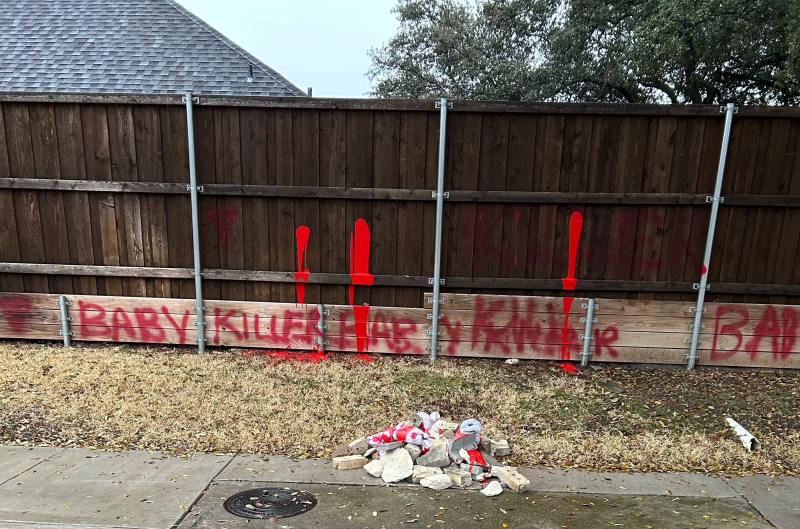
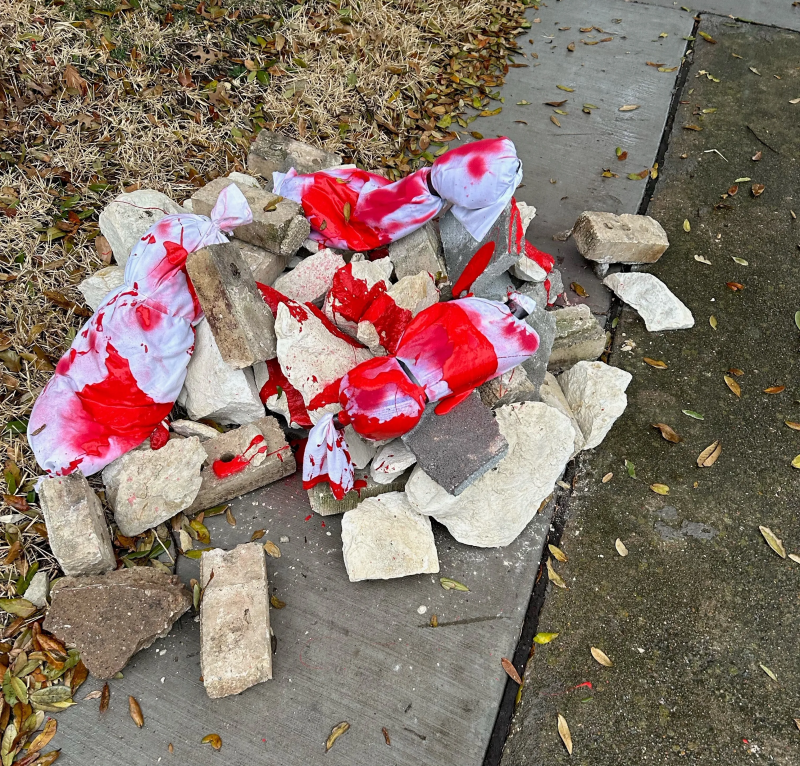
One Saturday morning in February, Dallas City Council Member Cara Mendelsohn awoke to find her home had been defaced by graffiti. “They brought rocks and bricks, and there was this pile of rubble with three fake dead babies that were left on the sidewalk. It was really disturbing.”
Some protesters have donned T-shirts that specifically take aim at her: “They’ve taken my face and covered the eyes and added horns and a pig nose.”
About half the Jews in her friend group “don’t wear identifiable Jewish items” anymore. Yet she wears a pin everywhere she goes that features an Israeli and American flag side-by-side.
“I feel that I’m showing the courage that we must. I don’t want to say I am not nervous. I think there is just this element of I am not going to retreat and pretend that I am not Jewish. That’s not going to happen.”
Return to state list
UTAH
Rabbi Avremi Zippel, of Salt Lake City, is grateful to live there. Since Oct. 7, there’s been a tremendous outpouring of solidarity in his community, he says, something he doesn't take for granted.
He doesn’t “see any value in catastrophizing antisemitism,” he adds. In his area, “by and large, the overwhelming communal sentiment is one of support to the Jewish people.”
Return to state list
VERMONT
Local Jewish organizations like Burlington’s Chabad of Vermont have hired private security guards, installed extra cameras and doubled up on locks.
“We wondered, is the fight in the Middle East going to spill out in Vermont?” says Rabbi Eliyahu Junik, of Chabad of Vermont.
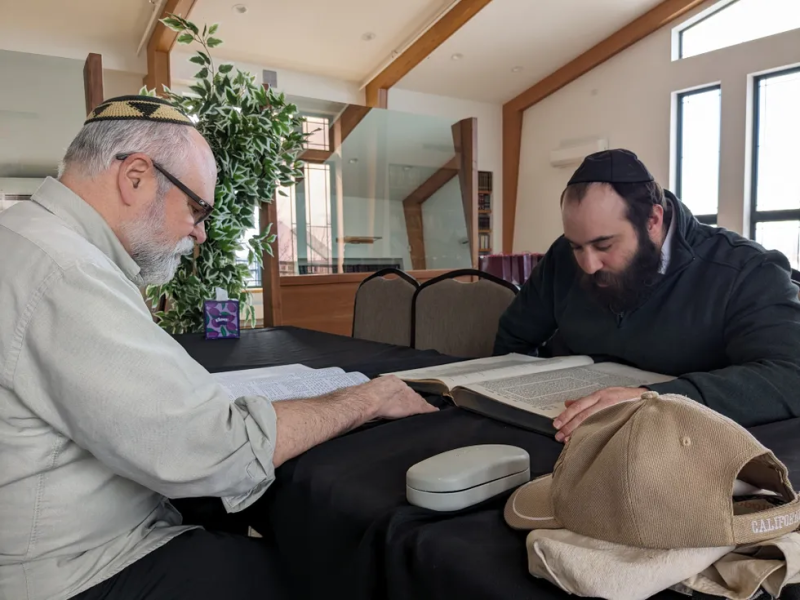
He finds what’s happening in Burlington public schools particularly concerning: “Children have been called ‘dirty Jews’ and other names” by their peers. They’ve been accused of horrible things just because they’re Jewish. It’s quite unsettling.”
He believes teaching about the Holocaust – which Vermont teachers are not required by law to do – will help kids understand the gravity of their words.
“Children don’t know what they’re saying,” Junik says. “Educate them about what we went through, and it will stop.”
In the meantime, Junik encourages members of his faith to continue being openly and proudly Jewish.
“I want my children to celebrate their heritage, not have it overshadowed by antisemitism,” Junik says. “Judaism has a lot (more) to offer than just combating antisemitism.”
Return to state list
VIRGINIA
Eric Maurer never imagined he’d see this level of antisemitism.
Some local Jews don't feel safe, he says. The nonprofit he leads, United Jewish Community of the Virginia Peninsula, has a security adviser who stays in contact with other Jewish organizations in the area as well as law enforcement.
"Unfortunately, we know that antisemitism and other forms of hate will continue to exist in a community," he says. "The real measure of strength is how a community responds when it does happen."
Return to state list
WASHINGTON
Rafael Gershom, a Modern Orthodox Jew from Seattle, feels uneasy about wearing a kippah in public but still goes to synagogue daily. “Jewish people are stronger in numbers both physically and mystically,” the 53-year-old says.
He’s glued to the news about Israel; he has a son there in the IDF reserves and another son and daughter planning to move there in a few months.
Back in August – before Oct. 7 – flyers with hateful messages about Jews were left on the doorsteps of homes in two Seattle neighborhoods. Antisemitism in the area has only gotten worse now, says Jewish Family Service CEO Rabbi Will Berkovitz in Seattle.
“It wasn't just in some little subtle corners here or there,” he says. “It was given permission to be … said out loud.”
Berkovitz has made a choice to never hide his Jewishness – though doesn’t judge anyone for choosing a different path.
“That's giving a victory which I wasn't willing to do,” he says. “And I think this is a time for the Jewish community to have courage and to speak out and to tell their stories.”
Return to state list
WASHINGTON, D.C.
An Israeli flag stands in a window in the Adams Morgan neighborhood of Washington, D.C. The city is also adorned with "Free Gaza" and "Free Palestine" signage. Not that the two opinions are mutually exclusive. Still, the liberal enclave is evidently grappling with some dueling viewpoints as the nation’s political power rests downtown.
David Olson, 35, is having a difficult time navigating his friendships. His non-Jewish friends won’t broach some topics with him, he says.
And Alex Chaves is more conscious nowadays of the Star of David necklace he bought in Israel when he was 16; He tucks it in more than he used to, though the 27-year-old president of a queer Jewish organization generally surrounds himself with Jewish people. But being queer and Jewish in the city sometimes puts him at odds with competing opinions – and it’s led to hard conversations.
“I won't speak for every Jew, but … I'm not always comfortable with my own relationship with Israel. And I have my own thoughts and opinions that don't always align with the masses or sometimes do.”
Return to state list
WEST VIRGINIA
“When I walk through the grocery store, people come up to me and say ‘... I just want to tell you I think it’s terrible what’s happening in Israel, and I hope those hostages will be returned soon,’” says Rabbi Joshua Lief, who leads Temple Shalom in Wheeling. Still, he says children in the area, including his daughter, are concerned about the anti-Jewish sentiments they see on TikTok. But he says it’s critical to remember, “That’s social media, not real relationships with our friends and neighbors.”
Return to state list
WISCONSIN
“Since the Tree of Life shooting in the fall of 2018, we have had uniformed and armed police officers patrolling outside our building as a visible deterrent,” says Rabbi Jonathan Biatch, of Temple Beth El in Madison.
In November, a neo-Nazi group marched through the city. The synagogue’s security is an unfortunate, but necessary reality, and people in the community understand why it's needed − especially now, Biatch says.
Yet a few hours away in Green Bay, Rabbi Michoel Feinstein says he's felt "an uptick in neighborly love." Recently, a woman offered him a hug to show her support, which he politely declined. Still, "the sentiment was very nice."
Return to state list
WYOMING
Paul Fridman, 56, immigrated to the U.S. from the then-USSR at 11 years old. “It was incredibly antisemitic,” he recalls. “I was in a fight essentially once a week in school as a result.”
“As I watch what is going on in the biggest cities, it’s all seeming very, very familiar. This is what I grew up with,” he says, “especially as I look at what is going on in some of the college campuses.”
He feels lucky to live in Jackson Hole, where the small Jewish community has felt supported, though, like elsewhere, there have been “some agitators” and outliers.
“The Christian community has been very, very supportive. We’ve really come together. We are blessed to live where we live.”
Return to state list
Contributing: Alex Gladden, Montgomery Advertiser; Daniel Cox-Gonzalez and Jose R. Gonzalez, Arizona Republic; Katie Camero, USA TODAY; Domenica Bongiovanni, IndyStar; Amanda Tugade, Des Moines Register; Eleanor McCrary, The Courier Journal; Niraj Warikoo, Detroit Free Press; Mary Boyte, The Clarion-Ledger; Brett McGinness, Reno Gazette Journal; Mike Davis, Asbury Park Press; Bebe Hodges, Cincinnati Enquirer; Dana Massing, Erie Times-News; Liam Adams, The Tennessean; Megan Stewart, Burlington Free Press
Disclaimer: The copyright of this article belongs to the original author. Reposting this article is solely for the purpose of information dissemination and does not constitute any investment advice. If there is any infringement, please contact us immediately. We will make corrections or deletions as necessary. Thank you.




